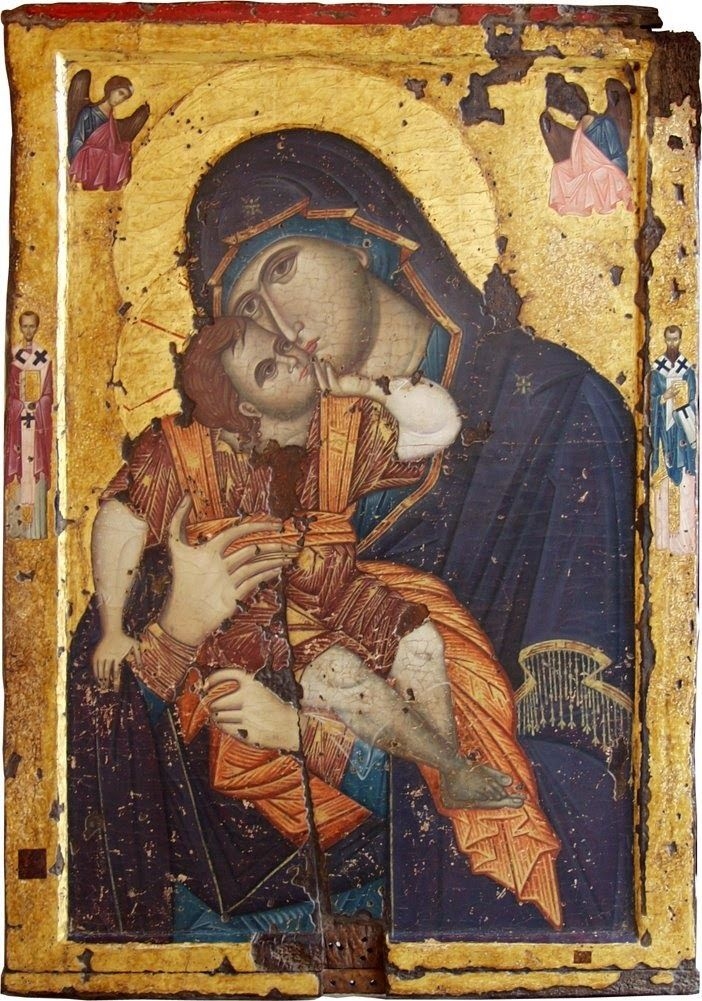These reflections are a result of more than 40 years of ministry as a Roman Catholic priest. Most of these years I spent in the Diocese of Charlotte which covers Western North Carolina. Now I am retired, and live in Medellín, Colombia where I continue to serve as a priest in the Archdiocese of Medellín.

The tax collector stood off at a distance and would not even raise his eyes to heaven but beat his breast and prayed, ‘O God, be merciful to me a sinner.’ (Lk 18:9-14)
https://bible.usccb.org/bible/readings/032622.cfm
The Jesus Prayer is ancient. It is based on this passage from the gospel of Luke: “Lord Jesus Christ, Son of God, have mercy on me a sinner.” We continue to pray for Ukraine and for an end to all war. Today's video is a traditional Afro-Colombian song to the Virgin Mary, Sagrada Santa María.

For this reason, when Christ came into the world, he said: “Behold, I come to do your will, O God.” (Heb 10:4-10)
https://bible.usccb.org/bible/readings/032522.cfm
The consecration of ourselves, the Church and all humanity, especially Russia and Ukraine, to God through the prayers of the Immaculate Heart of the Virgin Mary reminds us that we follow in the footsteps of Jesus Christ, who came to bring peace by his Cross. As Pope Francis says in his prayer, Mary’s Yes to God “opened the doors of history to the Prince of Peace.” Through the prayers of the Immaculate Heart of the Mother of God, we consecrate to the Lord “the future of the whole human family, the needs and expectations of every people, the anxieties and hopes of the world.” May God lead us now on the paths of peace. Amen.

Responsorial Psalm (Psalm 95)
R. If today you hear his voice, harden not your hearts. Come, let us sing joyfully to the LORD; let us acclaim the Rock of our salvation. Let us come into his presence with thanksgiving; let us joyfully sing psalms to him. R. If today you hear his voice, harden not your hearts.
https://bible.usccb.org/bible/readings/032422.cfm
The invitatory psalm, usually Psalm 95 (94), is the psalm that begins the first office of prayer in the Liturgy of the Hours. It “invites” to sing joyfully, to come into God's presence, to hear God’s voice, and to not harden our hearts. The response: “If today you hear his voice, harden not your hearts” is frequently heard during Lent. Today we continue our prayer for the Ukrainian people.

Moses spoke to the people and said: “Take care and be earnestly on your guard not to forget the things which your own eyes have seen, nor let them slip from your memory as long as you live, but teach them to your children and to your children’s children.” (Dt 4:1, 5-9)
https://bible.usccb.org/bible/readings/032322.cfm
Like the old song from South Pacific said in another context, “You've got to be carefully taught!” Those of us who were “carefully taught” love and respect for all people are eternally grateful for the parents and grandparents we had. It’s a shame that others received the opposite message. We keep praying for Ukraine.

Azariah stood up in the fire and prayed aloud: “For your name’s sake, O Lord, do not deliver us up forever, or make void your covenant. Do not let us be put to shame, but deal with us in your kindness and great mercy. Deliver us by your wonders, and bring glory to your name, O Lord.” (Dn 3:25, 34-43)
https://bible.usccb.org/bible/readings/032222.cfm
The words of the Scriptures become the words of prayer and lead us to faith and trust in God to deliver us. With their country in flames, the peopel of Ukraine still pray. As their national anthem proudly states: "Ukraine's not dead yet!"



